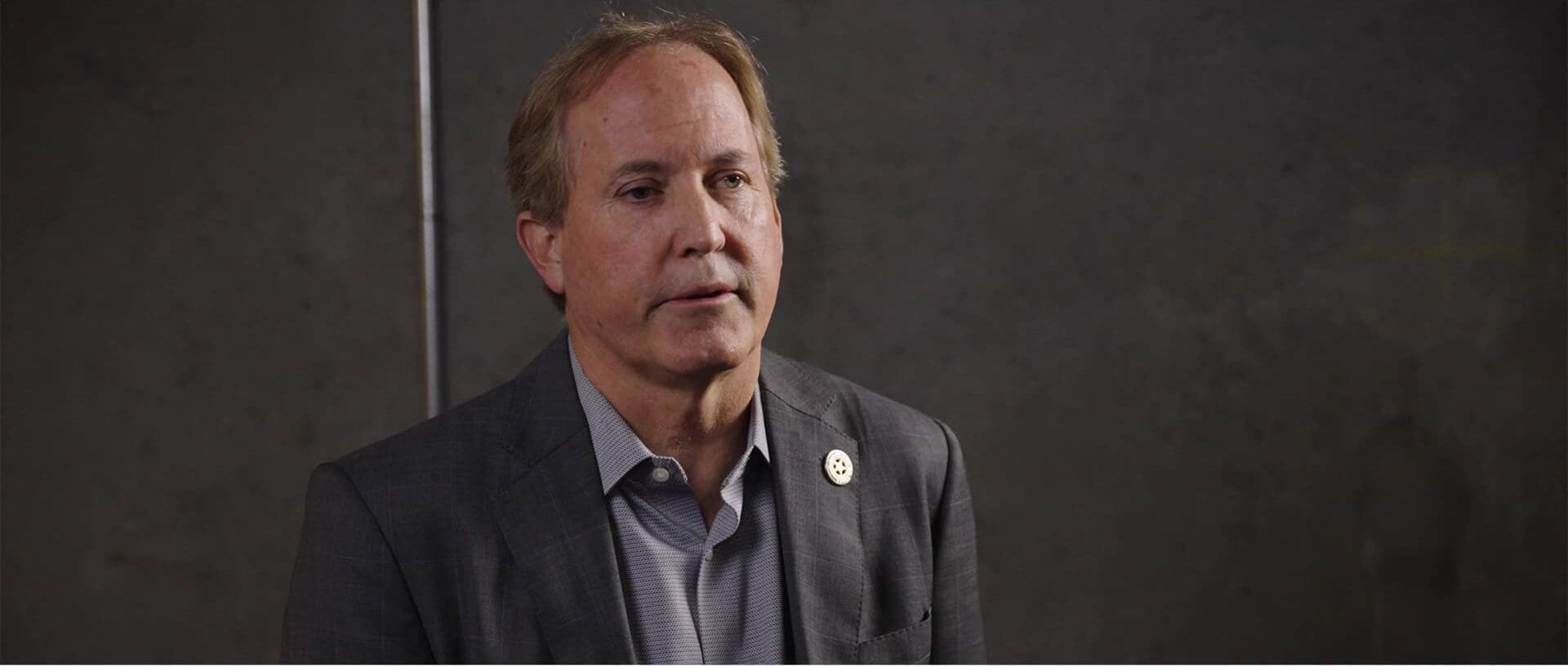Attorney Mitch Little is a newcomer to the political spotlight in Texas. Trey Trainor is a veteran of Texas politics and current Commissioner on the Federal Election Commission.
Both say Texans for Lawsuit Reform has become the guardian of the Texas political establishment.
As outlined in the first article of this series, TLR accomplished its goal of reforming Texas’ broken civil legal system over a 15-year period that ended in 2009. This is the consensus view. Dick Weekley, the group’s founder, articulated it himself in 2021: “We changed the state over the first 15 years, and we’ve had a pro-business state ever since.”
From a conservative perspective, this has meant keeping more liberal Republicans in office when they are challenged from the right. It also meant seeing Democrats keep positions of power.
“The Beast”
Trey Trainor, a veteran of Texas politics and a current commissioner of the Federal Election Commission said it’s an “open secret” in Austin that TLR works to kill conservative legislation on social issues and immigration.
“The business organizations don’t want those type[s] of things even discussed at the legislature, much less passed, because they think it detracts from what’s going on,” Trainor said. “It sucks all the oxygen out of the room when you’re working on those big important issues that are going to preserve the Republic.”
Trainor contrasted what he dubbed “business Republicans,” embodied by TLR, with “ideological Republicans” more attuned to grassroots conservatives. “The business Republican is only worried about the bottom line,” he said.”They’re not necessarily worried about the future of the state or the future of the country. It’s all about what are we doing, what’s best for me to make money today versus the ideological Republican who really is the patriot who’s concerned about what kind of state, what kind of country are we going to hand off to our kids and our grandkids.”
In a candid interview, Trainor offered a pointed critique of TLR. He said that the influential group that once spearheaded efforts to curb frivolous lawsuits in Texas has morphed into “a beast of Austin.” One that’s more focused on throwing its weight around than advancing good public policy.
“I think they were needed, they were a critical element to push Governor [George W.] Bush’s agenda,” Trainor said of TLR’s early days in the late 1990s and early 2000s. “Since that time, I think it’s morphed into an organization that’s more concerned with raising money and attaching itself to whatever the latest hot button issue is than necessarily being primarily focused on a greater good on a particular issue.”
Trainor’s view of TLR aligns with that of many others—that the group deserves immense credit for creating the third stool of the “Texas miracle”: a balanced civil justice system that beckoned businesses to the state. This combined with low taxes and sensible regulations proved to be jet fuel for the state’s economy. However, like attorney Mark Pulliam in part one of this series, Trainor contends TLR lost its way after accomplishing its core mission in the early to mid-2000s—that being landmark tort reform laws.
TLR once was an outside force challenging the plaintiffs’ bar and its Democrat allies. Indeed, the group was originally an enemy of the establishment. “We [TLR] then got heavily involved in politics, beat three state Senators, which, of course, back then, no one went against the incumbent,” Dick Weekley said in a May 6, 2021 interview. “We beat all three of them.”
Since then, TLR has become the guardian of the establishment. An analysis of campaign spending chronicled by Follow the Money reported close to half of the TLR PAC’s spending—$31 million—has been steered toward incumbent candidates. Support for open-seat races ranks a distant second at $19 million, while challengers are dead last at $17 million.
In a state like Texas, big spending and political maneuvering would make the most sense if it were in service of increasing the Republican Party’s control of the Texas House, as well as expanding its influence in local governments. Instead, TLR has dumped millions into races protecting incumbents where the challenger is likely to have equally conservative views on tort reform as the incumbent.
Mitch Little’s challenge to incumbent Kronda Thimesch is a good example of this. In March 2024, he won what many viewed as a longshot primary election.
His journey started as one of the defense attorneys for Ken Paxton in his 2023 impeachment trial. That was his first time in combat against Texans for Lawsuit Reform.
They’d butt heads again in Little’s primary race. He sat down with Texas Scorecard to discuss the race and his opponent’s largest donor, Texans for Lawsuit Reform.
The Austin-based political action committee has been called a behemoth, a justified label given its political giving.
TLR never reached out to interview Little after he announced a challenge to incumbent lawmaker Kronda Thimesch. Instead, the group spent an estimated $750,000 to $1 million campaigning against him. According to Little, TLR’s opposition was based on his high-profile defense of Attorney General Ken Paxton from an impeachment gambit launched by the Texas House in the twilight of the 2023 legislative session.
Despite their efforts, TLR failed to protect the incumbent.
Money is only one form of support. It’s not uncommon to see TLR-connected consultants running campaigns of those they support too. In addition to spending heavily on the race, longtime TLR political consultant Drew Lawson’s firm, Lawson Strategies LLC, worked on Thimesch’s behalf.
Little views this as an attempt to “preserve the little tree house that they have in Austin.” He wasn’t surprised as he said this. And he isn’t the first candidate to experience this treatment; it’s the norm.
Little argued TLR’s motivation at this point is maintaining a status quo. “I think there is a crony capitalist lobby in Austin that is designed to limit volatility of outcome. So the billionaires can stay billionaires, their businesses unaffected,” he said. “It doesn’t matter if there are children being sex trafficked across the border. It doesn’t matter if, you know, one or more lives aren’t preserved through pro-life efforts. Their central concern is limiting volatility of outcomes.”
Empowering Democrats
There are multiple possible explanations for this.
When Texans for Lawsuit Reform was founded in the 1990s, Texas was still early in its transition to a Republican state. Consequently, the group needed to work both sides of the political aisle. The fledgling PAC’s leadership reflected this dynamic. While Texas has become increasingly conservative, TLR’s leadership still prizes Democrats.
Such attitudes reflect the makeup of the organization’s leadership, which after thirty years remains largely unchanged. Dick Weekley, a real estate developer from Houston, founded TLR with a Democrat attorney, Dick Trabulsi. This was a set-up that made sense in the 1990s but is out of alignment with Texas today. RedState noted in 2012 that Trabulsi desired “to see the Democratic Party become competitive again and for Democrats to be in a ‘position of strength to influence public policy’ in Texas.”
Thanks partly to TLR’s position in Austin, Democrats have maintained power. This has resulted in the leftist party having an outsized role in the selection of the Speaker of the House. In return, their anointed Speaker gives Democrats chairmanships of powerful House committees.
As recently as 2022, Trabulsi spoke glowingly about Democrats having “meaningful committee assignments” in the Texas House. This was despite the GOP controlling every statewide office and majorities in both chambers. “In Texas, the minority party is respected by the majority party and is a full participant in the legislative process,” wrote Trabulsi.
Mitch Little described how this dynamic works. “TLR views those Democrat chairs as useful to kill the bills that they don’t want. And so if you are able to be placed into a position of power and called upon by TLR, for some purpose, at some point in time, they probably find Democrat chairs useful.”
Little expressed concern that the donors who have helped TLR amass its war chest may be unaware of how their contributions are being deployed. He used his 2024 primary challenge against moderate Thimesch as an example. “I think if any of those donors had sat down with me, they would realize pretty quickly that I’m a small business owner, that I’m a conservative, that I’m a lawyer, that I care about the same things they care about.”
Little also mentioned TLR has chosen the wrong side in the fight protecting minors from gender mutilation surgeries. He pointed to their opposition to legislation that would allow medical malpractice lawsuits from individuals who had these surgeries as minors.
“It doesn’t surprise me. I mean, I think it is consonant with their overall agenda of not creating new causes of action,” he acknowledged. “At the same point in time, we have a legal system for a reason. And it’s unthinkable that we have physicians, hospitals, physician groups in the state that have promulgated this type of practice that is going to leave people permanently changed.”
“Now that I know more about how Austin works, you start to understand that TLR views those Democrat chairs as useful to kill the bills that [they] don’t want,” Little observed. “It’s probably a good explanation for why TLR backed candidates in these primaries who were saying Democrat chairs are actually a good thing.”
As he looks ahead to taking office, Little said his victory over TLR’s well-funded opposition campaign sends an important message. “It’s the people who vote here, the people who care about the Republican legislative priorities; those are the people who matter.”
As Little sees it, there will be more concerted and widely supported calls for conservatism. TLR and allied groups like the Associated Republicans of Texas will undoubtedly push back on such efforts. But as Little’s victory suggests, they may be losing their vise grip on power in Austin.
The next installment will unpack TLR’s greatest political miscalculation to date. One that could have led to the undermining of Texas voters going forward.



